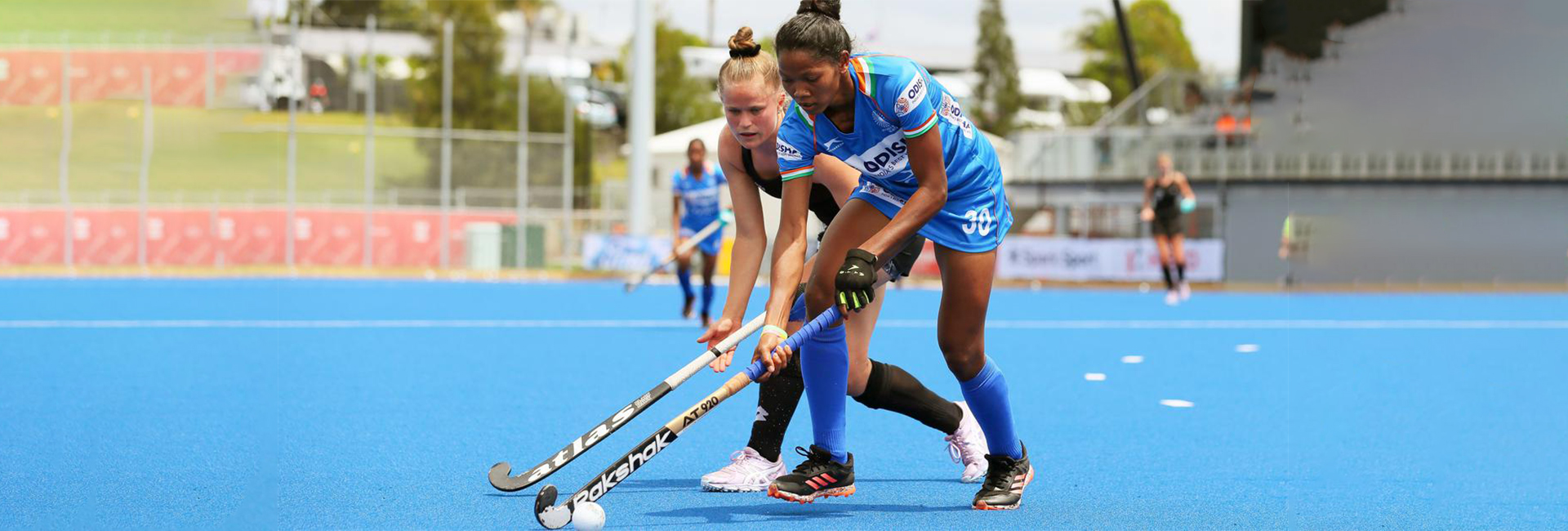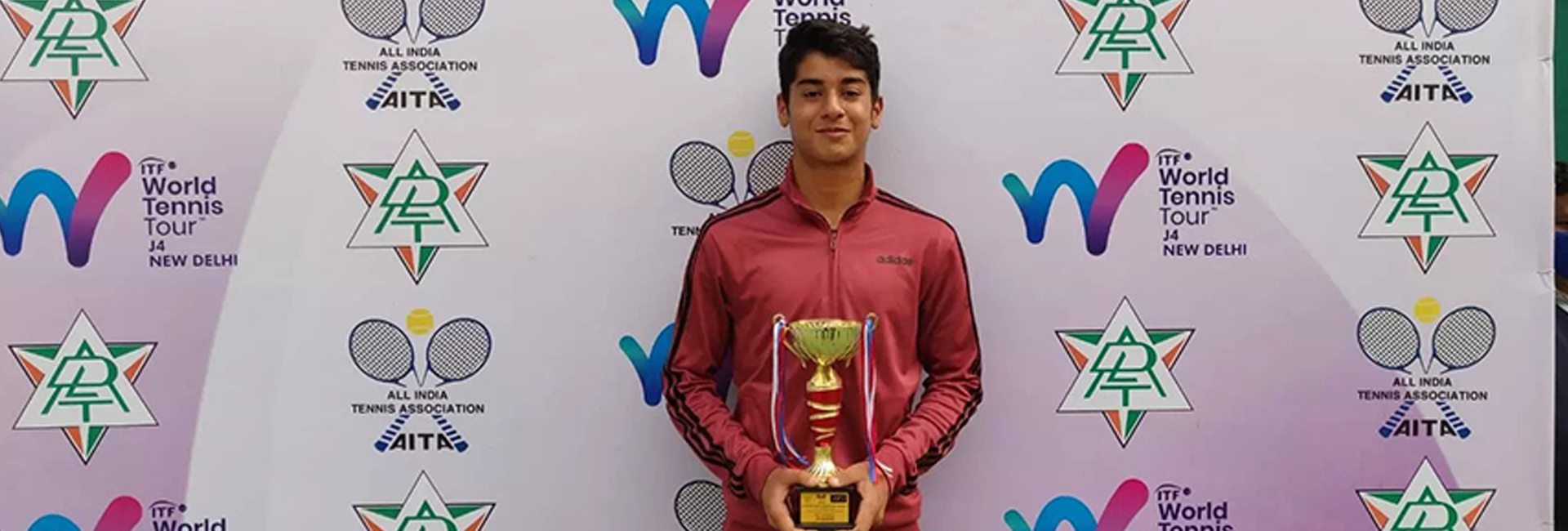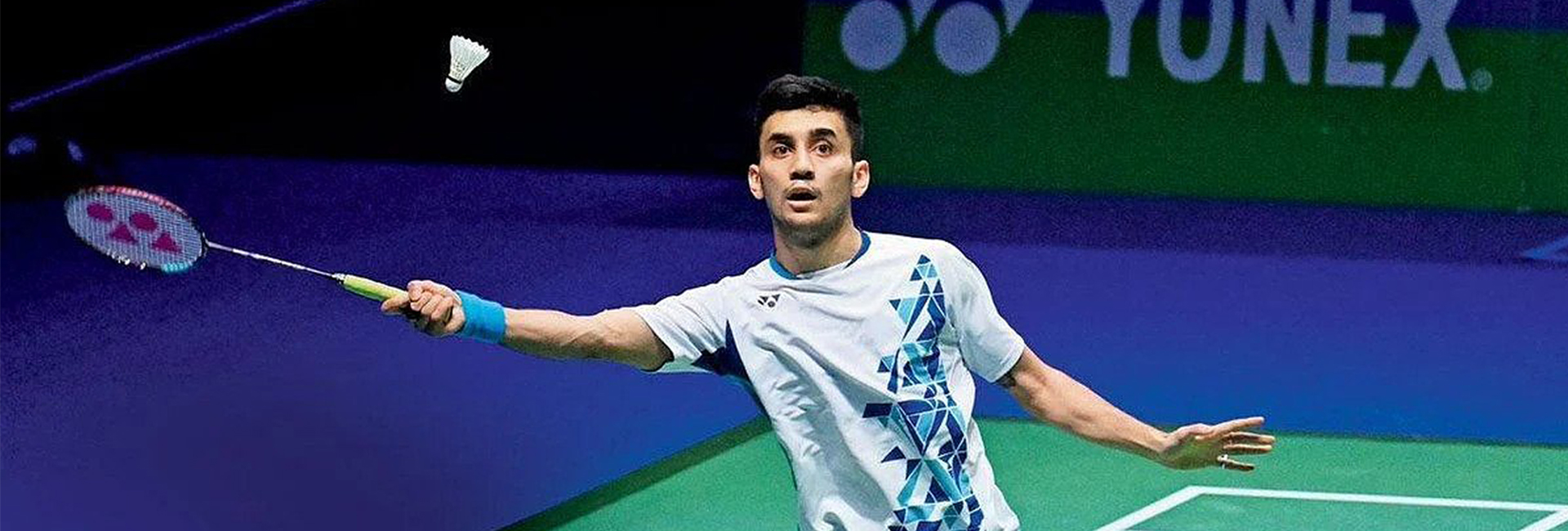(March 31, 2023) The girl who started playing hockey with bamboo sticks in the village grounds, travelled over 20-kilometres on her bicycle for matches, and won goats and chickens in village tournaments, has come a long way. Today, Salima Tete is an international hockey player, who was recently appointed by the Asian Hockey Federation (AHF) as its Athletes Ambassador from India.
The player has begun her two-year term along with three other players from Asia.
“I am honoured to be selected as one of the AHF ambassadors. As athletes from Asia, we face a lot of challenges in our careers. This position will allow me to bring our voices to the front,” Salima said during the AGM of AHF in Korea. “I hope to make a positive impact on the lives of athletes from the Asia region with this position,” she added.
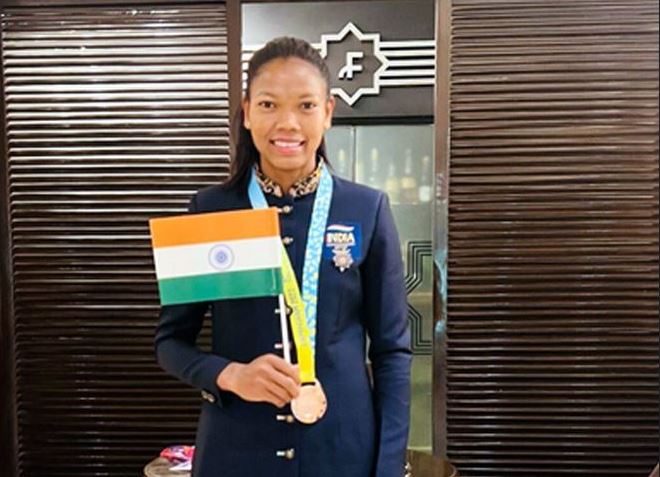
Salima Tete
Over the last several years, Salima has been an integral part of the Indian hockey team. She was named the ‘Rising Player of the Tournament’ at the Women’s Asia Cup tournament held in Muscat last year.
From rural Jharkhand to international hockey turfs
The journey of the twenty-one-year-old hockey player from a nondescript village of Simdega district in Jharkhand is nothing short of an inspiration.
Born to Sulakshan and Subani Tete, Salima and her five siblings grew up in extreme poverty amidst abundant love. It wasn’t just her family – the village was poverty-ridden, not a single home could afford a television set.
Her farmer father ferried the aspirant hockey player for matches as far as 20 kilometres from their village on his bicycle. The awards at these local tournaments were chicken and goats – the only items that the local organisers could arrange to give away as prizes. It was on occasions like these that the Tete family would devour a non-vegetarian meal. On other days the meals were as simple as could be.
Since there was no television or internet in their village, no one in the locality could watch Salima play her first major match. It was much later that her family started watching her play at national and international stadiums. By then, the midfielder was scaling her own mountains, and had made India proud on several occasions.
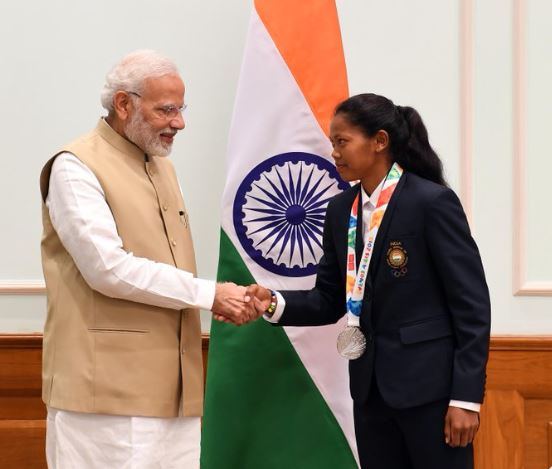

Salima Tete with PM Modi
In 2020, when Salima got the opportunity to play at the Tokyo Olympics, her village came into spotlight and better training facilities got introduced for the youth there. Her younger sister, Mahima, who had also been exposed to the sport thanks to her sister, began playing it too. Like Salima, Mahima is a national hockey player as well.
“Before the Tokyo Olympics, no one knew about our village and after I came back, the focus on our native place increased a lot. We have people visiting us from different places. People recognising the village I come from is really heart-warming,” Salima said in an interview. “Even my family feel very good when people come to visit. The whole atmosphere has changed and it makes me very happy,” she added.
The following year, in 2021 when Salima led the Indian women’s junior hockey team to a fourth-place finish at the Women’s Junior World Cup in Potchefstroom, South Africa she climbed the popularity charts further.
Surging ahead as an ambassador
After her appointment as AHF Athletes Ambassador, Salima remarked, “I sincerely thank the Asian Hockey Federation for showcasing their faith in me and also express my gratitude to Hockey India for their constant support in all my endeavours.”
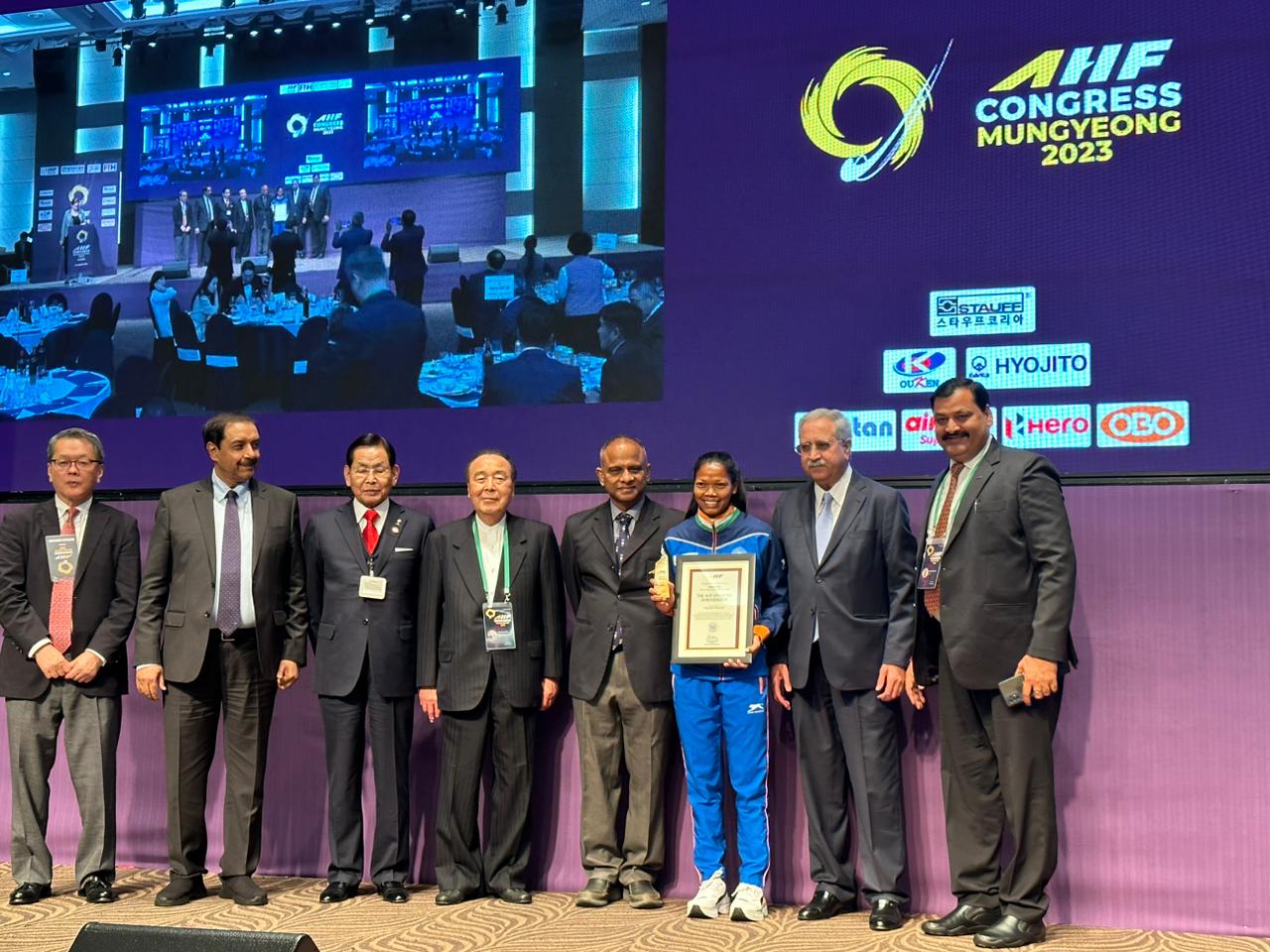

Salima Tete during the AHF AGM
In her two-year term (2023-25), Salima will be in a leadership role, facilitating the growth and international representation of athletes from Asia. She will also be working to promote awareness about athletes’ welfare and rights.
“Playing for India has really changed my life a lot, it has given me everything I could have asked for. I just want to keep performing for the country and winning more matches,” Salima had said in an interview. India is all praise for athletes like her for bringing laurels to the country.
- Follow Salima Tete on Instagram

